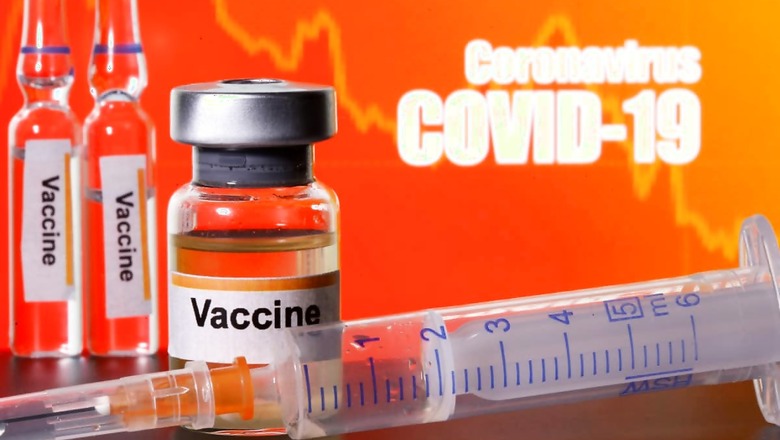
views
Close on the heels of announcements that the Pfizer-BioNTech, Moderna and Oxford-AstraZeneca vaccines have shown 70–94% efficacy in preventing Covid-19 disease, the vaccine companies have now entered the crucial phase of seeking approvals from central drug regulators in India. In the United Kingdom, Pfizer-BioNTech’s vaccine got approved for public rollout and vaccination is set to begin from Tuesday. Meanwhile, the US regulators are processing Pfizer’s application. News18 delves into the regulation behind drug approvals and what they say on approvals in emergency situations.
Which authority regulates and approves new drugs in India?
The Central Drug Standard Control Organisation (CDSCO) is the apex regulator with a mandate to approve new drugs, vaccines, clinical trials, diagnostic tests, medical devices and issue licenses for commercial sale.
During a business as usual scenario, new medicines and vaccines go through a slower process of clinical trials, data review and eventual market approval. It usually takes four to five years or even more to conduct clinical trials and to get a green signal from the regulator.
Has the national regulator adopted a different approach for approvals during the pandemic?
During the pandemic, the regulator has adopted an approach termed as ‘rolling review’. As part of the rolling review, the regulator has allowed adaptive clinical trial design and the different phases of the trials are allowed to run parallel to each other. If the regulator feels that it has sufficient data, it allows the drug or vaccine maker to move to the next phase based on interim analysis. In a usual scenario, data is reviewed only after all phases are completed.
In the case of imported medicines or vaccines that have received approval of their respective domestic regulator, the Indian regulator evaluates data from foreign trials to check if it is compliant with local norms. The local partners who have either received license to manufacture the drug or received technology transfer are asked to conduct a bridging study on the Indian population, said Dr VG Somani, Drugs Controller General of India, during a government webinar on Saturday.
Already, Pfizer India, Serum Institute of India and Bharat Biotech have applied for an approval for their vaccines under the accelerated process. Pfizer has sought waiver of any bridging study locally whereas Serum has submitted data from their ongoing Phase-II and Phase-III trials on safety and immunogenicity along with Phase III efficacy trials data from the UK. Bharat Biotech has finished Phase II trials and has recently begun Phase III efficacy trials.
What laws/rules regulate approval of new drugs and vaccines?
The New Drugs and Clinical Trials Rules, 2019, framed under the Drugs and Cosmetics Act, 1940, dictate the multiple provisions to be followed for review and approvals of new drugs, clinical trials and vaccines.
Besides detailing procedures for seeking approval for clinical trials and new drugs, the Rules also outline provisions for ethical conduct of trials and norms to follow for permitting drugs and vaccines in an emergency situation.
What do the Rules say about accelerated approvals?
Unlike the US FDA or UK regulator which grants ‘emergency use authorisation’ for new drugs and vaccines, the Indian rules term it as ‘accelerated review’ and ‘accelerated approval process’. Under this process, a new drug is approved based on data generated in clinical trials. The Rules provide a relaxation for skipping Phase III clinical trials, which crucially test for a vaccine or drug’s efficacy in preventing disease in the local population.
Phase III trial is allowed to be skipped if ‘remarkable efficacy’ is observed with a defined dose in the Phase II clinical trial of the new drug. The regulator can then also grant market approval for the new drug or vaccine based on Phase II data to meet what the Rules call ‘unmet medical needs of serious and life threatening diseases in the country’.
The Rules also state that in such cases, additional studies ‘may’ be required after approval to generate data on a larger population to verify its benefits. Unmet medical needs essentially means a situation where treatment or diagnosis of disease is not addressed adequately with the available therapy.
Further, the Rules provide for relaxations for unapproved or imported drugs or vaccines. The regulator relies on clinical trial data generated abroad to approve the vaccines in such scenarios and additional non-clinical or clinical data may be required to back the claims.
What do experts say about the implementation of these Rules during the pandemic?
Public health experts and activists have flagged the opaque system adopted by CDSCO to approve drugs during the pandemic. CDSCO only releases a brief record of the minutes of meetings held by Subject Expert Committees, who appraise clinical trial data for new drugs and vaccines.
CDSCO has used the term ‘restricted emergency use’ to approve drugs such as Remdesivir and Favipiravir. However, experts have pointed out that such a terminology does not even exist in the New Drugs and Clinical Trials Rules, 2019. Experts have also questioned the approval for experimental drugs to treat Covid-19 even before Phase III data was scrutinised.
“The rule is that you must have all three phases completed before you seek approval. The terms ‘emergency use’ and ‘restricted use’ are missing in the New Clinical Trial Rules, 2019. There is a chance or one little opportunity to directly grant approval based on Phase II data, but that is a it is narrow area and I don’t think it applies to a vaccine,” said Murali Neelakantan, lawyer and former global general counsel for Glenmark Pharmaceuticals and Cipla Ltds.
Neelakantan added, “The right way to go about it (regulation and accelerated approval) is to do three phases, update the data frequently to the regulator rather than wait for the trial to finish. You can do a rolling data review like in the UK so that the regulator can see data as it comes in and do an accelerated review not an accelerated trial. The time we need to approve this gets reduced. Stick to science and don’t short circuit science and laws but accelerate review process.”
Read all the Latest News, Breaking News and Coronavirus News here


















Comments
0 comment